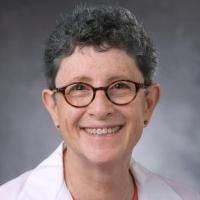Accelerating stem cell trials for Alzheimer's disease.
Date
2016-02
Journal Title
Journal ISSN
Volume Title
Repository Usage Stats
views
downloads
Citation Stats
Attention Stats
Abstract
At present, no effective cure or prophylaxis exists for Alzheimer's disease. Symptomatic treatments are modestly effective and offer only temporary benefit. Advances in induced pluripotent stem cell (iPSC) technology have the potential to enable development of so-called disease-in-a-dish personalised models to study disease mechanisms and reveal new therapeutic approaches, and large panels of iPSCs enable rapid screening of potential drug candidates. Different cell types can also be produced for therapeutic use. In 2015, the US Food and Drug Administration granted investigational new drug approval for the first phase 2A clinical trial of ischaemia-tolerant mesenchymal stem cells to treat Alzheimer's disease in the USA. Similar trials are either underway or being planned in Europe and Asia. Although safety and ethical concerns remain, we call for the acceleration of human stem cell-based translational research into the causes and potential treatments of Alzheimer's disease.
Type
Department
Description
Provenance
Subjects
Citation
Permalink
Published Version (Please cite this version)
Publication Info
Hunsberger, Joshua G, Mahendra Rao, Joanne Kurtzberg, Jeff WM Bulte, Anthony Atala, Frank M LaFerla, Henry T Greely, Akira Sawa, et al. (2016). Accelerating stem cell trials for Alzheimer's disease. The Lancet. Neurology, 15(2). pp. 219–230. 10.1016/s1474-4422(15)00332-4 Retrieved from https://hdl.handle.net/10161/24635.
This is constructed from limited available data and may be imprecise. To cite this article, please review & use the official citation provided by the journal.
Collections
Scholars@Duke

Joanne Kurtzberg
Dr. Kurtzberg is an internationally renowned expert in pediatric hematology/oncology, pediatric blood and marrow transplantation, umbilical cord blood banking and transplantation, and novel applications of cord blood and birthing tissues in the emerging fields of cellular therapies and regenerative medicine. Dr. Kurtzberg serves as the Director of the Marcus Center for Cellular Cures (MC3), Director of the Pediatric Transplant and Cellular Therapy Program, Director of the Carolinas Cord Blood Bank, and Co-Director of the Stem Cell Transplant Laboratory at Duke University. The Carolinas Cord Blood Bank is an FDA licensed public cord blood bank distributing unrelated cord blood units for donors for hematopoietic stem cell transplantation (HSCT) through the CW Bill Young Cell Transplantation Program. The Robertson GMP Cell Manufacturing Laboratory supports manufacturing of RETHYMIC (BLA, Enzyvant, 2021), allogeneic cord tissue derived and bone marrow derived mesenchymal stromal cells (MSCs), and DUOC, a microglial/macrophage cell derived from cord blood.
Dr. Kurtzberg’s research in MC3 focuses on translational studies from bench to bedside, seeking to develop transformative clinical therapies using cells, tissues, molecules, genes, and biomaterials to treat diseases and injuries that currently lack effective treatments. Recent areas of investigation in MC3 include clinical trials investigating the safety and efficacy of autologous and allogeneic cord blood in children with neonatal brain injury – hypoxic ischemic encephalopathy (HIE), cerebral palsy (CP), and autism. Clinical trials testing allogeneic cord blood are also being conducted in adults with acute ischemic stroke. Clinical trials optimizing manufacturing and testing the safety and efficacy of cord tissue MSCs in children with autism, CP and HIE and adults with COVID-lung disease are underway. DUOC, given intrathecally, is under study in children with leukodystrophies and adults with primary progressive multiple sclerosis.
In the past, Dr. Kurtzberg has developed novel chemotherapeutic drugs for acute leukemias, assays enumerating ALDH bright cells to predict cord blood unit potency, methods of cord blood expansion, potency assays for targeted cell and tissue based therapies. Dr. Kurtzberg currently holds several INDs for investigational clinical trials from the FDA. She has also trained numerous medical students, residents, clinical and post-doctoral fellows over the course of her career.

P. Murali Doraiswamy
Murali Doraiswamy MBBS FRCP is Professor of Psychiatry and Professor in Medicine at Duke University School of Medicine where he is a highly cited physician scientist at the Duke Institute for Brain Sciences. He is also a Senior Fellow at the Duke Center for the Study of Aging and an Affiliate Faculty at the Duke Center for Precision Medicine and Applied Genomics as well as the Duke Microbiome Center. He directs a clinical trials unit that has been involved in the development of many modern diagnostic tests, apps, algorithms, and therapeutics in wide use today. Prof Doraiswamy has been an advisor to leading government agencies, businesses and advocacy groups including the NIH, FDA, and WHO as well as numerous life science companies. He has served as the chair of the World Economic Forum’s Global Agenda Council on Brain Research and co-chaired the innovation advisory council for one of the world’s largest social impact funds dedicated to promoting innovative solutions to reverse age related disorders. He has lectured at leading global forums to advance the forefront of aging and neuroscience research. Moreover as an investigator on numerous landmark trials and co-author on more than 400 publications, he has received several awards in recognition of his scientific work. Additionally, he is a leading advocate for increasing funding for brain and behavioral research to help address great looming challenges in society posed by modern developments in the 21st century. His research has been featured in media outlets such as BBC, The New York Times, Scientific American, The Wall Street Journal, National Public Radio, CBS Evening news, The Dr Oz Show, Oprah, and TIME. He has appeared in acclaimed documentaries such as (Dis)Honesty: The Truth about Lies and Mysteries of the Brain. He is the co-author of a popular book The Alzheiemr's Action Plan. Prof. Doraiswamy also serves on the board of several global charities.
Unless otherwise indicated, scholarly articles published by Duke faculty members are made available here with a CC-BY-NC (Creative Commons Attribution Non-Commercial) license, as enabled by the Duke Open Access Policy. If you wish to use the materials in ways not already permitted under CC-BY-NC, please consult the copyright owner. Other materials are made available here through the author’s grant of a non-exclusive license to make their work openly accessible.
